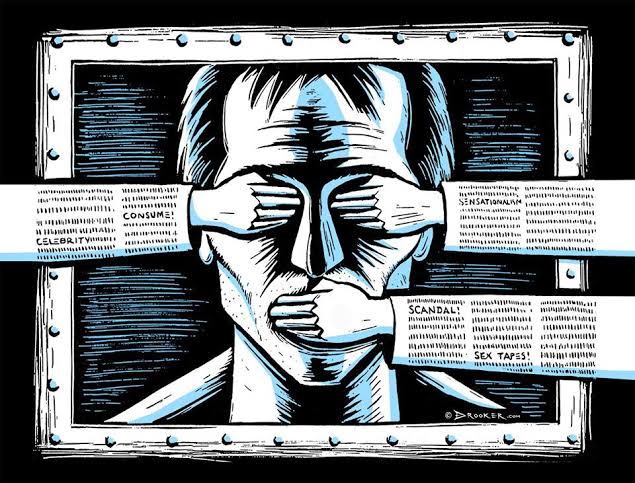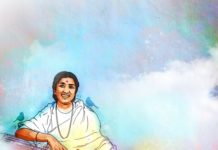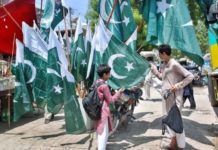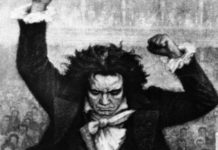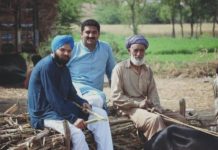“Now if you say that word, I’ll put embers on your tongue.” This is often the first introduction to censorship for children, and then it becomes a way of life. Certain things are not to be said in front of the children, some are hidden from the elders, few questions shouldn’t be asked from the imam of the mosque and some subjects are considered taboos in the school. The purpose of all this training is to create a mindset that will make us “Biba” (understanding). Convinces us of the present condition to be ideal, instills respect for the powerful sections of society in our psyche, a citizen who must avoid asking questions, or shouldn’t ask at all.
Intellect is a double edged sword, hence there exists “various” reasons for censorship. Sadat Hassan Manto appeared in the courts because of his description of societal menaces. Due to conflicting views with the “Ideology of Pakistan”, the book “My Brother” by Fatima Jinnah, which was written in 1955, could not be published till 1987. And the nation’s beloved Habib Jalib was often arrested for violating “State” censorship.
If any authentic definition of “obscenity” and “immorality” pass through our eyes, only then we can talk about the issue. For now let’s stick to the political reasons for this curse. Censorship is actually acceptable to us personally only in one case and it would be appropriate to discuss that.
In 2002, PTV Prime, which at that time was the only Pakistani channel for compatriots in the United States and Europe. One day the channel got a call from a white man who said that he was talking from Ofcom London (say British PEMRA) and said, why not “suspend your TV license”. The reply was, “What sin have we committed?” The answer was, “You have run an advertisement for a TV play in broad daylight in which a male character slaps a woman.”
The authorities at PTV Prime couldn’t understand him because they used to highlight and sensationalize slap scenes in the promos of every drama, and more and more scenes of slaps were considered a guarantee of a successful promo. “Violence against women and showing blood on TV during the day is strictly forbidden since children are glued to the TV screens, and violating this rule is severely punished,” Replied the man from Ofcom.
This is the only form of censorship that seems reasonable to us, and is probably not a problem for anyone in Pakistan. In our TV dramas, women are still slapped and promos run from dawn to dusk. We don’t have time to reflect on the stereotypes that are forming in the raw minds of children who watch violence against women in plays every day. No TV channel has ever disappeared from cable on this basis, no TV commercials have been blocked, and no notice has been ever issued to anyone over this.
Censorship is an expression of society’s distrust of itself. Censorship begins where the argument ends. Can we make realities that are dancing in the streets hide behind the veil of censorship? Once upon a time, two loving ostriches were standing with their heads in the sand. The female ostrich said to her lover, “How long will we continue to meet secretly like this?” We as a nation are in a similar situation. In every village, every town, every city which we are experiencing and going through is never highlighted on the mainstream channels and TV dramas.
Chaudhry Shujaat Hussain (A Pakistani Politician) once narrated an incident pertaining to censorship in a TV talk-show “Sach To Yeh Hai”. Worth mentioning that Chaudhry Sahib has full faith in “careful driving that breeds positive results”, he is praiseworthy, he also weighs the conversation with utmost care.
He said, “On December 16, 1971, I was sitting in the lobby of the Rawalpindi Intercontinental Hotel. PTV was broadcasting a live speech of General Yahya Khan. The words of his speech still echo in my ears, when Yahya said: Retreat on any one front does not mean that the war is over, the war is going on, and we will fight the enemy on every front and we will never surrender.
Chaudhry Sahab’s close relative Sajid Hussain Chatha, was an officer in the army and was stationed in Dhaka those days. Chaudhry Sahib called him from the lobby of the hotel at the same time and Sajid Chatha said, “I am sitting in the ditch and orders to surrender had reached him”.
Chaudhry Sahib writes, “Hearing this, my mind caught fire, the ground felt sliding under my feet, for the first time feelings of sorrow and anguish emerged inside me with full force. General Yahya Khan’s speech was still on air. I wanted to take off my shoes and hit the TV screen. I still regret why I didn’t take off my shoe and hit the TV screen at that time. “
Note: Hence, censorship is an evil, it does harm, and many times it causes catastrophic damage. Explanation: If you find this column incoherent, it is only the result of self-censorship.


